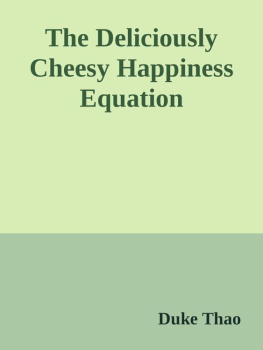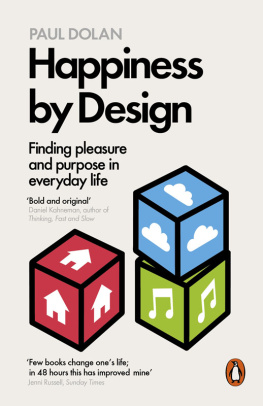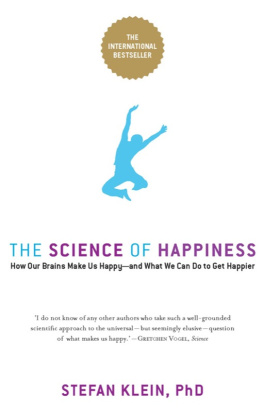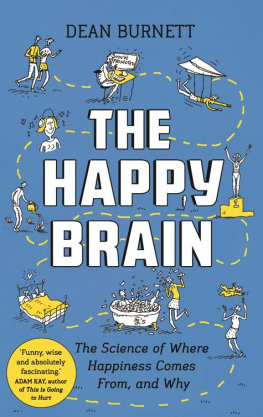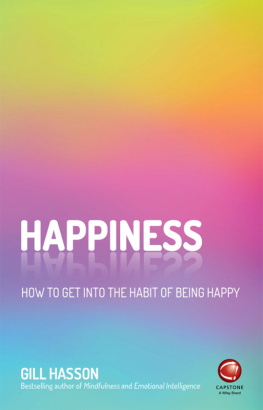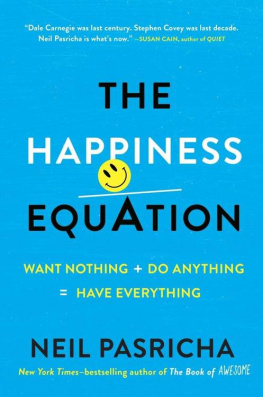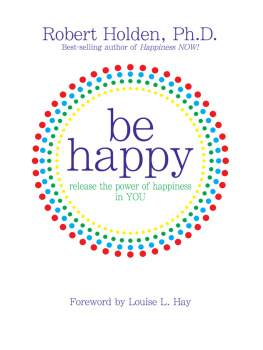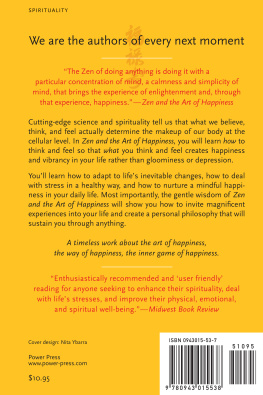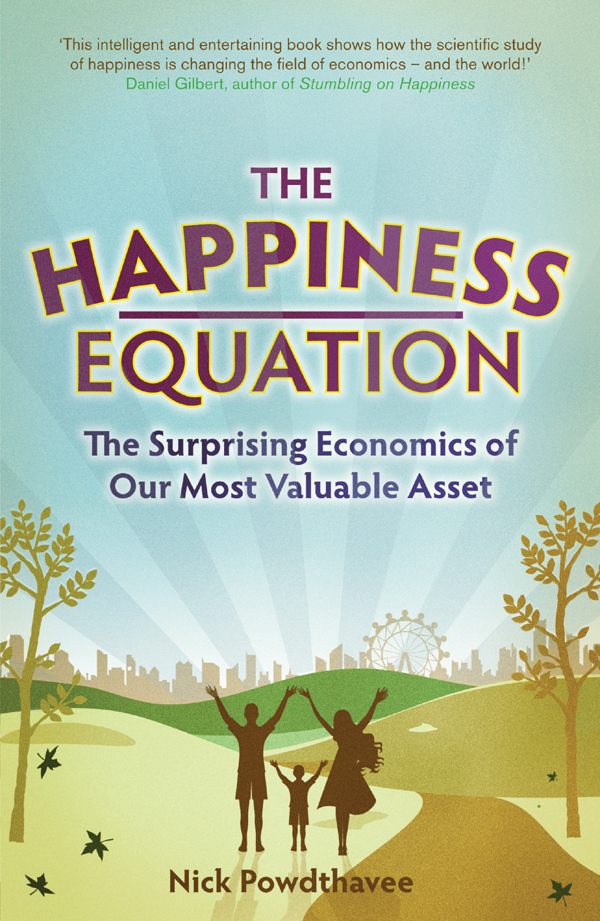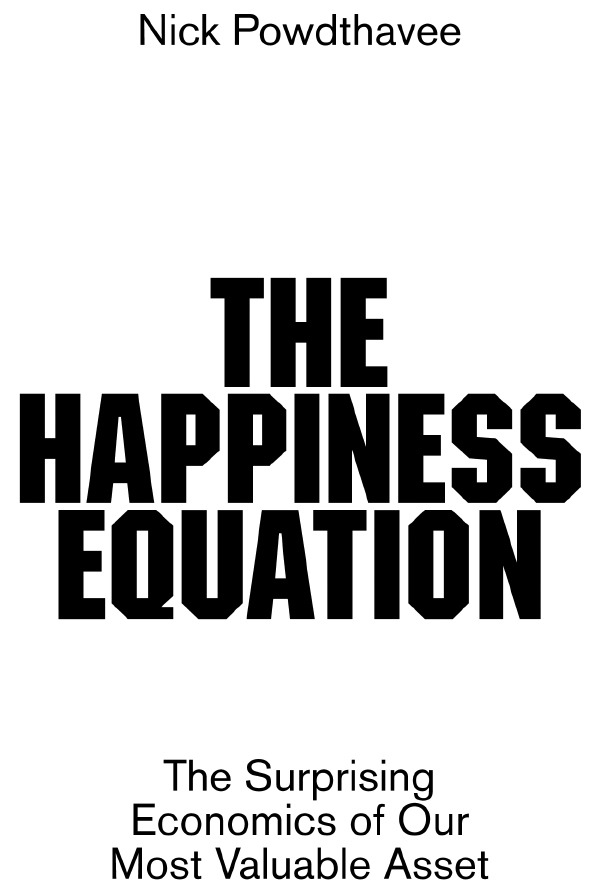

Published in the UK in 2010 by
Icon Books Ltd, Omnibus Business Centre,
3941 North Road, London N7 9DP
email:
www.iconbooks.co.uk
This electronic edition published in 2010 by Icon Books
ISBN: 978-1-84831-224-1 (ePub format)
ISBN: 978-1-84831-225-8 (Adobe ebook format)
Printed edition (ISBN: 978-1-84831-166-4)
sold in the UK, Europe, South Africa and Asia
by Faber & Faber Ltd, Bloomsbury House,
7477 Great Russell Street, London WC1B 3DA
or their agents
Printed edition distributed in the UK, Europe, South Africa and Asia
by TBS Ltd, TBS Distribution Centre, Colchester Road,
Frating Green, Colchester CO7 7DW
Printed edition published in Australia in 2010
by Allen & Unwin Pty Ltd,
PO Box 8500, 83 Alexander Street,
Crows Nest, NSW 2065
Printed edition distributed in Canada by
Penguin Books Canada,
90 Eglinton Avenue East, Suite 700,
Toronto, Ontario M4P 2YE
Text copyright 2010 Nattavudh Powdthavee
The author has asserted his moral rights.
No part of this book may be reproduced in any form, or by any
means, without prior permission in writing from the publisher.
Typeset by Marie Doherty
C ONTENTS
1:
2:
3:
4:
5:
6:
7:
8:
9:
10:
11:
A BOUT THE AUTHOR
Dr Nattavudh (Nick) Powdthavee is a behavioural economist at the University of York (shortly to move to the Department of Economics, Nanyang Technological University, Singapore). Discussions of his work on the economics of happiness have appeared in over 50 major international newspapers in the past five years, including the New York Times and the Guardian , as well as on TV, including Channel 5 News and The Wright Stuff . He is originally from Thailand.
To Andrew, for telling me, all those years ago, that its okay to do the things other people dont do.
Also to Nateecha, for telling me, some years later, that its okay to do the things other people do, too.
Happiness is not having what you want,
but wanting what you have.
Rabbi Hyman Schachtel
CHAPTER 1
T HE PURSUIT
Most of us go through life believing we know exactly what we need to make us happy. For the most part, we believe that all we ever need is to have someone we love loving us back. Or its a combination of more money, a good job, a stable marriage and perfect health. Sometimes its the little things in life, like a day off work; a clear blue sky on an autumn afternoon; a nice cup of cool mochaccino on a hot day; an hour-long foot rub; a day spent laughing with friends and family; 45 minutes of uninterrupted sex with our partner, and the energy to last for the best part of it.
But unfortunately in the words of Mick Jagger and Keith Richards we cant always get what we want. At least, we cant always get what we want all the time. A day off work every so often sounds like a good idea until, of course, we realise that we will become a little poorer because of it. And thats no good because, according to the abstract idea we have in our heads of what makes a good life, money matters a lot. Okay then, in that case, well put in more hours at work. But wait. That will also mean less time to be spent with friends and family, and that doesnt seem so good either.
So what do we do, then? What do we do when our lives are a series of trade-offs between different combinations of what ifs? What do we do when there is an endless horizon of time and resource constraints constantly telling us that whatever we do, we cant possibly have it all? Well, according to economists, who are supposedly experts on decision-making, what usually happens is that we try to do the best we can with our choices. We gather all necessary information about our options. We engage in rationalisation and mental calculations. We quietly argue and debate within ourselves over the potential impacts of each individual decision on our happiness. We cross-refer them to the rule-book of All the things that make me happy, put each possibility into an order of preference, and then, subject to both time and resource constraints, choose the best combination of bundles that we know would optimise our well-being.
Easy.
Bounded rationality
But of course, if that were true if we always chose the best possible combination of options according to stable preference functions and the constraints facing them then the way we led our lives would literally be disappointment-free. Whatever decisions we made, we would know exactly well in advance what we were getting ourselves into. After all, our rationality would have already done the homework for us: we would be getting the greatest reward at the lowest cost.
How could we possibly not be happy with that?
The reality, however, is that our lives are too often filled with disappointing and regrettable decisions, whether big or small. The holiday we went on last summer; that antique car we bought; or even the job or college degrees we picked. The following anecdotal evidence from a chance meeting between two economists and a dentist makes it all too clear.
Two economics professors and friends, John Bennett and Chuck Blackorby, were attending an economics conference. On the first evening, they met a dentist at the hotel bar who was at an annual conference for dentists just next door to them. After a brief introduction and a couple of drinks, Chuck, who was known for his sometimes brash and direct manner, decided to ask the dentist, by then a little tipsy, a somewhat personal question.
So, tell me, are you very happy being a dentist?
Happy? Im miserable as a dentist, replied the man.
Chuck smiled to himself. What? If youre so unhappy, why on earth did you choose to become a dentist in the first place?
I didnt choose to become a dentist. The man took another swig of his drink before delivering the final hammer blow. Its that stupid kid eighteen years ago that chose to become a dentist. Not me.
And even when were not too disappointed; when we actually think were fairly satisfied with the choices we made, sometimes theres just no way for us to know for certain whether or not we would have been happier if wed gone with the alternatives. Take having children, for example. For most parents, a natural and genuine response to the question, Would you be happier without children? would be a screaming No! However, theres no real way of knowing precisely what life would have been like if these parents had decided not to have their little David or Sarah simply because the childless alternative didnt take place for them. The same argument holds true for partners who choose not to become parents.
One of the main reasons why we arent always able to choose the best options for ourselves is that our rationality is often bounded by the amount of information it possesses, the cognitive limitations of our brains, According to the so-called bounded rationality concept, we human beings are only partly rational and downright irrational in the remaining part of our actions. While economists believe that all human beings are approximately Homo economicus (economic man), rational and broadly self-interested by nature, the reality is that we are just as likely, if not more likely, to let emotions overrule rationality and completely dictate the way we behave.


